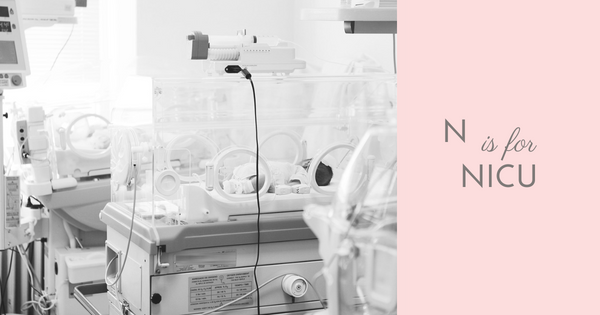When you find out you’re pregnant, you may begin preparing: hiring a doula, booking a birth planning session, reading about breastfeeding and car seat safety. Nobody prepares for the news that their baby may have to go to the neonatal intensive care unit (NICU). We spoke with Veteran NICU moms to get their input, too, since they’ve been there, done that.
Facts About Your Baby Being in the NICU
- Most of the time, you can still have skin-t0-skin contact with your baby when they are in the NICU. You should be able to hold your baby skin-to-skin unless he is on a ventilator. If your baby is on the ventilator, repositioning them can cause the endotracheal tube to shift. However, if your baby is on CPAP, it is likely that you will still be able to hold your baby. Don’t be afraid to ask your baby’s doctor, nurse, social worker, or patient advocate to help you hold your baby.
- Skin-to-skin can help your baby regulate their temperature, respiratory rate, heart rate, and temperature, as well as help their nervous system to mature.
- For more information on skin-to-skin contact, check out our post here.
- The hospital may limit visitors. Their goal is to protect your baby (as they have an immature immune system). Typically visitors are limited to healthy individuals over the age of 12 and this limit typically applies to siblings, too. Depending on the set up of the NICU where your baby is staying, your older child may be able to take a peek at their new brother or sister.
- Your baby’s care team does not have a magic ball to predict when your baby can go home and things can change on a dime (for better or worse). Because of this, if you ask, “when can my baby come home?” you may not get a straight answer. Instead, consider asking what milestones your baby has to meet before they’re able to be discharged. Make a check list and check off each of the milestones as they are reached, reminding yourself that your baby is one step closer to coming home.
- Celebrate these milestones – when your baby is weaned off the ventilator, when they go from IV nutrition to an NG tube to bottle feeding, when they come off CPAP. These are big deals in your baby’s life!
- Be present during rounds, if possible. This is when you will have the best access to your baby’s care team (keep in mind that not all NICUs allow parents to be present during rounds, as multiple patients may be discussed and they need to preserve their privacy.
Suggestions from Parents who have “been there, done that”
-
- Unless you were using drugs, your baby’s stay in the NICU is most likely not your fault. Don’t beat yourself up over it. Instead, focus on advocating for your baby.
- When they say, “your baby will be ok,” they mean that your baby will survive. They are not implying anything about when your baby will be able to go home with you or their long-term health.
- You may be able to stay in the hospital while your baby is in the NICU, depending on the hospital and their availability of rooms. Some hospitals do not allow parents to stay in the hospital overnight (unless you’re also an admitted patient). Ask their policy as soon as possible so you can prepare yourself for what’s ahead.

This photo is of a mom holding her baby for the first time, 20 hours after he was born.
- Don’t be afraid to ask to hold your baby.
- Take pictures – you will want to remember how small they once were and how far they have come. Also, looking at pictures of your baby can help boost your milk output when you pump.
- Bring pictures for their isolette.
- Bring a blanket from home (that smells like you/your partner) to comfort your baby when you cannot be there with them.
- If you cannot pump enough milk, ask about screened donor milk from the milk bank.
- Get to know your baby’s Primary Nurses or the patient advocate.
- Remember: this is your baby. You have the right to know what is going on and to have someone explain the machines, procedures, and treatment options (as many times as you need them t0).
Next in the Series
O is for Oxytocin
P is for Placenta Encapsulation
Q is for Queasiness

